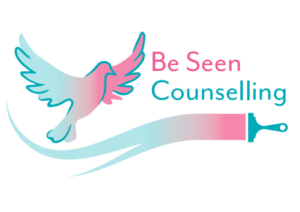
Teenage years are intense. Hormones are flying around like fireworks, everything feels new and exciting, and the heart often takes the lead before the head can catch up. It’s a time of firsts—first crushes, first kisses, maybe even first heartbreaks. But it’s also a time of emotional chaos, where identity is still forming, and boundaries are being tested left, right and centre.
Teenagers begin to pull away from their parents, not because they don’t care, but because they’re starting to build a sense of independence. That can lead to leaning more heavily on friendships and romantic relationships, often putting them on a pedestal. It’s natural. Friends become a chosen family. A new boyfriend or girlfriend feels like the centre of their world. But this pull can come with real risks when they’re still learning how to have healthy relationships and understand emotional safety.
First love can feel like stepping into another world. Everything’s brighter. Music sounds deeper. A text from that person can make your heart race, while silence from them feels like the world’s ended. You might daydream constantly, lose interest in school, or find yourself thinking about them before you fall asleep and as soon as you wake up. It’s not just “puppy love”—these are real emotions, even if they’re early ones.
Teenagers might describe it as “intense,” “all-consuming,” or “like no one else gets it.” That’s normal. But this kind of emotional surge can also make it hard to think clearly. If love becomes your only source of happiness, if you feel like you’re not okay unless they’re texting back, or if you start shaping your life around theirs—that’s a sign things are slipping out of balance.
And then there’s the flip side.
When things go wrong—when there’s a misunderstanding, an argument, or a break-up—those same feelings can turn on you. Heartbreak can feel physical: a tight chest, a sick stomach, heavy limbs. Some teenagers describe not wanting to eat, sleep, or see friends. This is where emotional support matters most. First love might feel like everything, but it’s not the only thing. Helping young people see that they’re still whole without that relationship is vital.
Setting boundaries isn’t just about saying “no”—it’s about knowing yourself and what feels right for you. That can be tough when you’re still figuring out who you are. But there are ways to check in with yourself:
Practical boundary-setting might sound like:
These might feel awkward at first, but good people will respect them. If someone reacts with guilt-tripping, sulking, or threats—that’s not okay. That’s manipulation.

Everyone has a gut instinct—it’s that little internal alarm bell that rings when something feels off. The problem is, teenagers are often taught to override it to please others or avoid “making a fuss.” But instincts are powerful. They’re rooted in the body, not just the brain.
Here’s how gut instinct might show up:
Learning to trust that voice is key. It’s there to protect you. You don’t have to prove something’s wrong to leave a situation or set a boundary. If it feels wrong, it is wrong for you—and that’s enough.
You won’t always get it perfect. You’ll make mistakes, ignore that gut feeling sometimes. That’s okay. What matters is learning from those moments, not punishing yourself.

A healthy relationship—at any age—includes:
They should still feel like themselves when they’re with someone. If they start changing how they dress, what they like, or who they talk to just to keep their partner happy—that’s a red flag.
Unhealthy teenage relationships can start subtly. A bit of jealousy might be brushed off as “cute.” Constant texting might be seen as “caring.” But over time, these can become controlling behaviours. Things to look out for include:
Outside of school, the pressure to “grow up fast” can be intense. Whether it’s through social media, peer groups, or the unspoken rules of teen culture, many feel they have to experiment with sex, drugs, or adult behaviours before they’re ready. It’s crucial teenagers know: It’s okay to say no. It’s okay to change your mind. It’s okay to wait.
Teenagers are often told to “trust their gut,” but not always taught how to recognise it. That uncomfortable feeling in the pit of the stomach when something doesn’t feel right? That’s your body sending a signal. Whether it’s being in a car with someone who’s been drinking, being pressured to send a nude, or just feeling uneasy around someone—they should listen to that.
Encourage them to notice the difference between nervous excitement and genuine fear. Between butterflies and warning bells. Their gut instinct is a survival tool.

It’s hard watching your child step into the world of romantic relationships. You might feel worried, protective, even powerless at times. The key is to stay connected without clinging. If you push too hard, they may shut you out. If you back off completely, they might feel abandoned.
Here are a few ways to strike that balance:
Teenagers are navigating a minefield of emotion, identity and expectation. Romantic relationships are just one part of that, but they can leave deep imprints. The goal isn’t to protect them from every mistake—they need those too. It’s to help them make choices they won’t regret, and know they’re never alone, no matter how messy it gets.
If they feel loved, heard, and respected at home, they’re far more likely to expect that in their relationships too.

Hi there, my name is Carina,
I support survivors of domestic violence / Intimate partner violence, to understand and process the emotional and psychological symptoms so that you live your life feeling safe in your own skin, gain peace and joy in everyday moments and trust yourself and others again.
Camberwell
Southwark
London SE5 7HN

©BeSeenCounselling2025
©2025
Be Seen Counselling